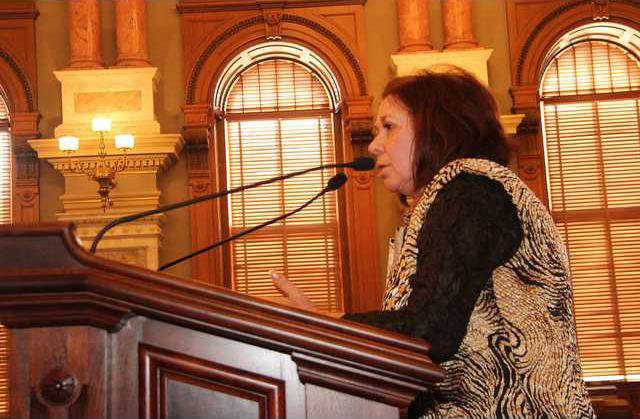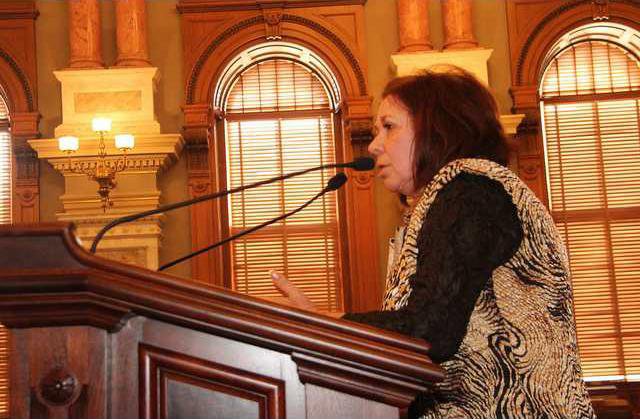The Kansas Silver Haired Legislature is seeking older Kansans with an interest in politics and public policy. Anyone who is at least 60 years old has until Feb. 10 to file for the next two-year term.
Janice Walker, Great Bend, has filed for a second term as Barton County’s Silver Hair Legislator. She plans to visit the Great Bend Senior Center around 11:45 a.m. Tuesday, Jan. 24, and stay for lunch.
“I’ll be handing out information about the 2017 recommendations that the Silver Haired Legislature has for the Kansas Legislature and governor,” she said.
The KSHL consists of 125 representatives from across Kansas who come together annually in Topeka to discuss and propose legislation that impacts Kansas of all ages. The KSHL will hold its annual elections across the state on Wednesday, March 15.
All 28 county seats in southwest Kansas are up for election this year, but several counties have not had a representative for the past two years, said Dave Geist, executive director of the Southwest Kansas Area Agency on Aging. Those seats could be filled if people applied.
“We could use a few,” Geist said. G.L. VonFeldt is finishing a two-year term in Pawnee County, but other area counties have not had a representative.
Information on becoming a candidate can be obtained by calling Geist at the SWKAAA office in Dodge City, 800-742-9531.
Candidates must be registered voters and residents in the county in which they are running, and willing to participate in all activities expected of Kansas Silver Haired Legislators for a two-year term. They can either complete a candidate registration form that requires a $25 filing fee or complete a petition of nomination with 50 signatures.
This is one way for the senior citizens in Kansas to have their collective voice heard, Geist said.
“The Silver Haired Legislature was responsible for introducing the Senior Care Act in 1997,” he noted.
This year’s resolutions, which were passed by the KSHL last October, urge the Legislature and governor to fully fund the state’s KPERS obligations, and to approve a cost of living allowance for Kansas Public Employee Retirement System beneficiaries.
Other resolutions urge repeal of the non-wage business income tax exemption passed in 2012, continued funding for public transportation – an issue Geist said is especially important to seniors in rural areas – and restoration of last year’s 30 percent cut to the Senior Care Act program.
The program allows a qualifying senior to stay in his or her own home with just a minimum of assistance, which averages $250 a month, compared with an alternative of nursing home expenses, which can easily average around $4,000 per month, according to the resolution.
Geist said the 30 percent cut on July 1, 2016, had an impact on 151 customers in the SWKAAA service area, which went from having no waiting list to 33 people waiting for services.
Another resolution urges the expansion of Medicaid (KanCare) in Kansas. The resolution states that approximately 150,000 Kansans – including 16,000 seniors between 60 and 65 years old – fall into a “coverage gap” where they make too much money to qualify for the base KanCare program, yet not enough to be able to afford medical insurance on their own.
Silver Haired Legislature taking applications





